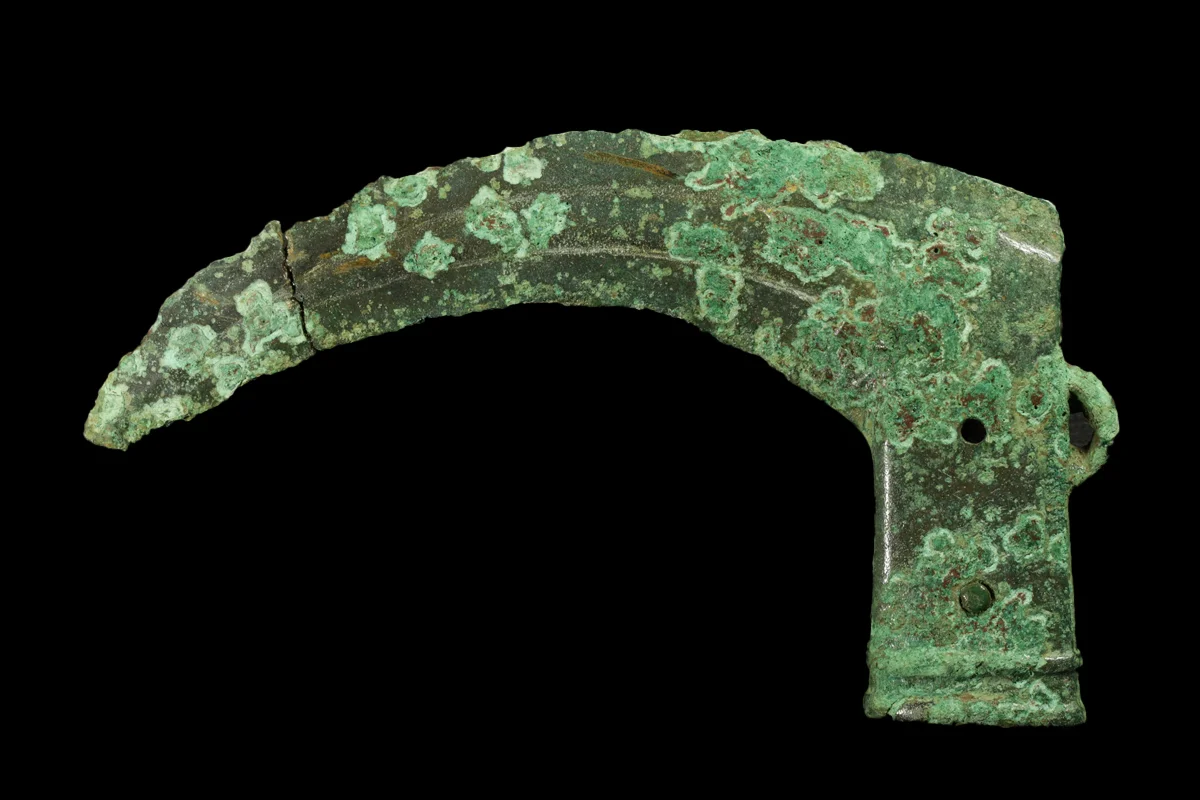Archaeologists from the National Institute for Preventive Archaeological Research (INRAP) have announced the discovery of a Bronze Age sickle in France’s Lower Seine Valley.
According to experts, the sickly has origins in the British Isles and dates to around 1200–600 BC during the Late Bronze Age.
Made of copper alloy and in near-complete condition, the sickle has worn marks along the curved edge consistent with repeated cutting. Its socket includes a side ring and two holes where a wooden handle was once fixed with pegs made from bone.
A microscopic analysis revealed traces of the original handle preserved inside the socket, which tests suggest would have been made either from willow, poplar, black alder, hornbeam, or hazel.
Based on comparisons of sickles found throughout Europe, archaeologists have traced the origins of the sickles to the British Isles, suggesting long distance trade and cultural connections between populations in Britain and France during the Late Bronze Age.
During this period, trade in bronze metalwork along the Atlantic seaboard expanded dramatically. From around 1200 BC, the archaeological evidence reveals a significant shift: metalwork began circulating in far greater quantities and with much greater regularity. This marks the emergence of a fledgling mercantile trade, replacing the earlier, more exclusive exchange system.
“Originating from the British Isles, this type of socketed sickle is rare in France; only around ten examples have been recorded, concentrated on the Channel coast (valleys of the Somme and the Seine) and the Atlantic coast,” said INRAP.
Header Image Credit : S. Le Maho
Sources : INRAP





